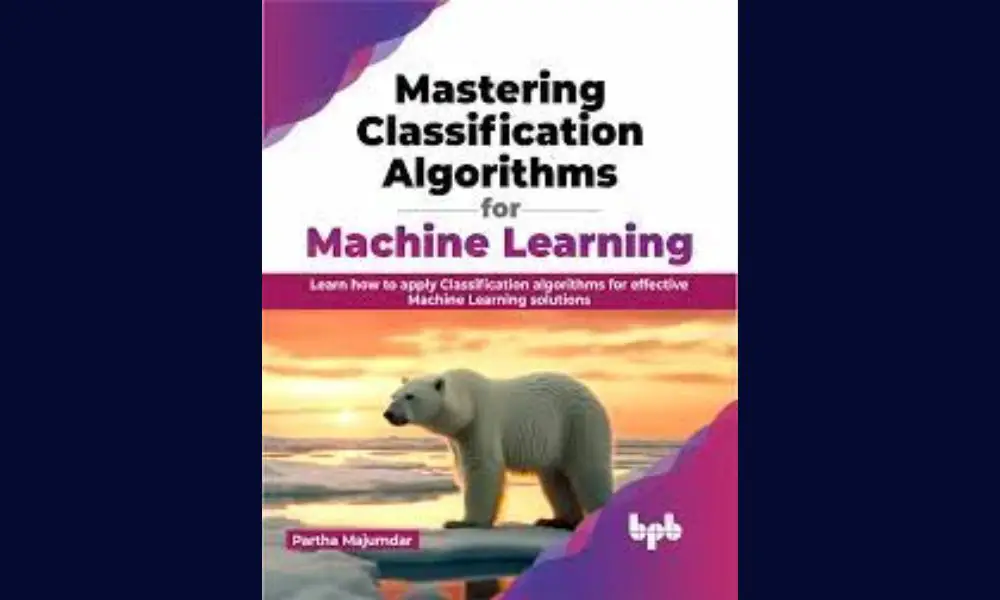Mastering Classification Algorithms for Machine Learning: Learn how to apply Classification algorithms for effective Machine Learning solutions (English Edition)
Table of Contents
Introduction
In the rapidly evolving field of machine learning, staying updated with the latest techniques and algorithms is essential for success. The book “Mastering Classification Algorithms for Machine Learning” by Partha Majumdar presents an opportunity to delve into the world of classification algorithms, equipping both beginners and experienced practitioners with the knowledge to navigate this dynamic landscape effectively.
Book Summary
“Mastering Classification Algorithms for Machine Learning” is a comprehensive guide that navigates readers through the intricate realm of classification algorithms. Starting with the basics of machine learning problem-solving, the book swiftly transitions into a deep exploration of classification problems and their solutions. With a focus on practical application, this book takes readers on a journey from fundamental concepts to advanced methodologies.
Book Information
- Title: Mastering Classification Algorithms for Machine Learning
- Author: Partha Majumdar
- Publisher: BPB Publications
- Publication Date: May 23, 2023
- Pages: 380
- Format: Paperback, Kindle
- Rating: 5.0 out of 5 stars
Overview of the Book
The book’s organization is strategically designed to facilitate a progressive learning experience. It commences with an introduction to machine learning, setting the stage for understanding the subsequent chapters. The transition to classification problems is seamless, allowing readers to grasp the significance of algorithms in solving real-world challenges.
Key Concepts
The book covers a plethora of critical concepts that lay the foundation for practical classification algorithms. From the Naïve Bayes algorithm, a probabilistic method widely used in industrial applications, to the Logistic Regression algorithm and Decision Trees, each concept is presented with clarity. Additionally, the book delves into ensemble models, highlighting the power of combining multiple models to enhance accuracy and robustness.
Writing Style and Clarity
Partha Majumdar’s writing style is a standout feature of the book. Complex concepts are conveyed straightforwardly and engagingly, making them accessible to readers with varying levels of expertise. The author’s ability to explain intricate mathematical foundations in a comprehensible way contributes significantly to the book’s clarity.
Strengths of the Book
One of the book’s prominent strengths lies in its practicality. Readers gain insights into applying classification algorithms to real-world industry problems through numerous examples and case studies. This hands-on approach bridges the gap between theory and practice, fostering a deeper understanding of the subject matter.
Areas for Improvement
While the book excels in its presentation, a slight expansion of technical depth in certain sections could enhance its value to advanced practitioners. Additionally, including more visual aids, such as diagrams or flowcharts, might aid in visualizing complex algorithms and concepts.
Who Should Read This Book
“Mastering Classification Algorithms for Machine Learning” caters to a diverse audience. Machine Learning Engineers, Data Scientists, Data Science Enthusiasts, Researchers, Computer Programmers, and Students seeking to broaden their understanding of classification algorithms will find this book invaluable.
Conclusion
In conclusion, “Mastering Classification Algorithms for Machine Learning” is a compelling resource that empowers readers to tackle complex machine learning problems with confidence. Its comprehensive coverage, practical approach, and lucid writing style contribute to a rewarding learning experience.
By the final page, readers will possess a solid grasp of classification algorithms, enabling them to make impactful contributions to the field of machine learning.
FAQ
- Is this book suitable for beginners?
Yes, this book is tailored to both beginners and experienced practitioners. It starts with foundational concepts and gradually progresses to advanced topics. - Does the book include practical examples?
Absolutely. The book is replete with practical examples, case studies, and applications, ensuring readers can apply the concepts in real-world scenarios. - Are ethical considerations discussed in the book?
While the book primarily focuses on algorithms, it does touch upon ethical considerations, especially when discussing applications like fraud detection and sentiment analysis. - Does the book provide hands-on projects?
While the book doesn’t include extensive hands-on projects, it equips readers with the knowledge and understanding required to embark on their projects confidently. - Are specific programming languages covered in the book?
The book primarily focuses on the algorithms’ concepts rather than specific programming languages. However, it does provide annexures on Python and Jupyter Notebook for practical implementation.
